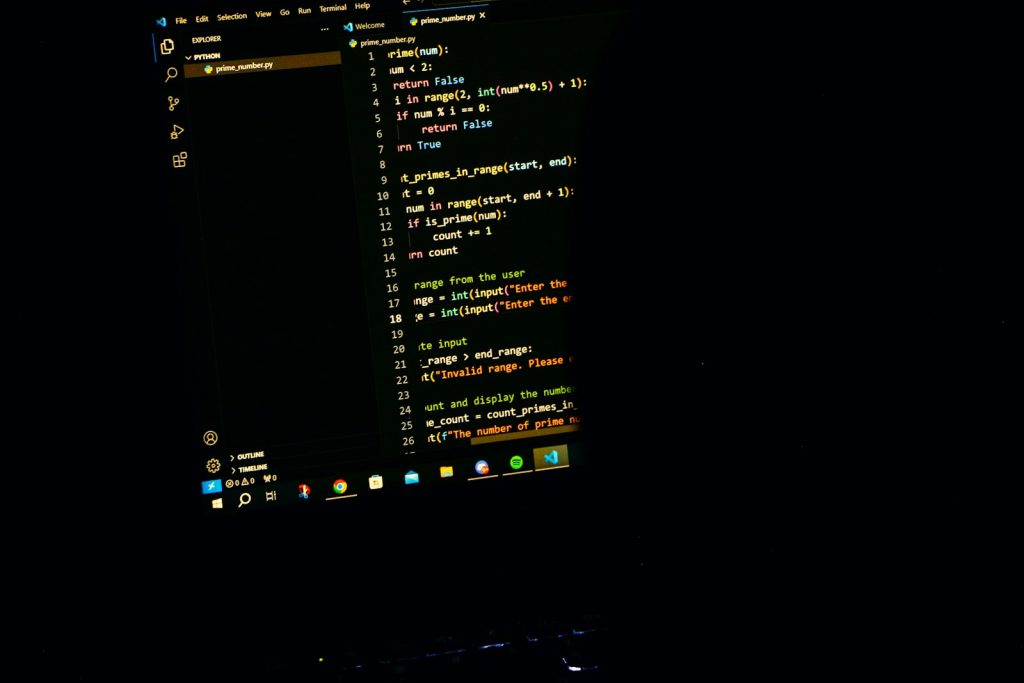In recent years, Germany SaaS teams have been quietly changing the way they build their software development capacity. Increasingly, startups and established companies alike are seeking more reliable, scalable alternatives to freelancers. This shift in Germany SaaS hiring trends is driven by a desire for deeper collaboration, consistent quality, and long-term growth, factors often difficult to achieve when relying solely on freelance talent. In this article, we explore the reasons behind this transition and how SaaS businesses in Germany are adapting to build stronger, more efficient teams.
Understanding the Evolution of Germany SaaS Teams

The software-as-a-service (SaaS) sector in Germany has seen remarkable growth, thanks to the country’s strong engineering culture and burgeoning startup ecosystem. Historically, many SaaS companies turned to freelancers to quickly scale their development teams and meet project deadlines. However, this approach often led to challenges such as fragmented workflows, inconsistent coding standards, and limited availability.
Germany SaaS teams are now increasingly recognising the value of dedicated development partners who provide not only technical expertise but also strategic collaboration. Companies are moving towards partnering with software development firms, like Dev Centre House, which offer dedicated developers embedded directly within client teams. This model ensures smoother communication, higher accountability, and continuity that freelancers may struggle to provide.
Why SaaS Freelancer Alternatives Are Gaining Ground in Germany
One key reason for the decline in freelancer reliance among Germany SaaS teams is the complexity of modern software products. SaaS applications today require a holistic approach encompassing not just coding but also architecture planning, DevOps, security, and continuous integration. Freelancers, often working in isolation, may lack the bandwidth or incentives to fully engage in these areas.
SaaS freelancer alternatives in Germany, such as dedicated squads or extended teams from trusted software development companies, are filling this gap. These teams bring comprehensive skill sets and operate within a structured environment that aligns with the client’s long-term vision. This approach results in faster development cycles, better product quality, and improved agility, crucial advantages in today’s competitive SaaS landscape.
Additionally, the cultural fit and time zone alignment provided by partnering with local or nearshore teams help Germany SaaS companies foster more effective collaboration. Rather than juggling multiple freelancers with varying availability and commitment levels, businesses can rely on consistent teams that integrate seamlessly into their existing workflows.
Germany SaaS Hiring Trends: The Rise of Dedicated Development Partnerships
The trend toward dedicated development teams is reshaping the hiring landscape in Germany’s SaaS industry. Instead of piecemeal freelancer contracts, companies prefer long-term partnerships with software houses offering tailored development resources.
Dev Centre House, with its offices in Dublin and Dubai and a strong focus on supporting startups and enterprises, exemplifies this shift. Their model allows Germany SaaS teams to scale flexibly by onboarding dedicated engineers who become an extension of the client’s organisation. This structure provides not only technical talent but also project management support and knowledge transfer, elements that are difficult to secure through freelancers.
Moreover, this approach mitigates risks associated with freelancer turnover, knowledge silos, and coordination overhead. By investing in a trusted development partner, Germany SaaS companies can focus on core business activities while maintaining robust control over product development.
How Custom Software Development Enhances SaaS Growth in Germany

Custom software development is at the heart of this transformation. Tailored solutions allow SaaS companies to address unique market needs and differentiate their offerings. Germany SaaS teams leveraging custom software development services, like those offered by Dev Centre House, benefit from specialised expertise in various technologies and agile methodologies.
This custom approach ensures that software products are scalable, secure, and designed to evolve with user demands. By collaborating closely with dedicated developers, companies can iterate faster, integrate user feedback efficiently, and maintain a competitive edge.
Furthermore, working with a partner experienced in both startup and enterprise environments provides valuable insights into industry best practices and emerging trends, helping Germany SaaS teams anticipate market shifts and adapt proactively.
Conclusion: Embracing the Future of SaaS Development in Germany
As the German SaaS sector continues to expand, the need for reliable, high-quality development resources becomes paramount. The trend away from freelancers towards dedicated teams and trusted partners marks a strategic evolution in how Germany SaaS teams operate.
By choosing alternatives such as dedicated developers from companies like Dev Centre House, SaaS businesses can build more cohesive, agile, and resilient teams. This not only improves product quality and delivery speed but also supports sustainable growth in a competitive market.
If you’re a founder, CEO, or CTO looking to scale your SaaS product with a committed development partner, exploring custom software development services in Germany and beyond could be the next step towards success.
FAQs:
1. Why are Germany SaaS teams moving away from freelancers?
Germany SaaS teams are shifting away from freelancers due to the need for more consistent collaboration, reliable availability, and deeper integration within their projects. Freelancers often work in isolation and on short-term contracts, which can lead to fragmented workflows and delays. Dedicated teams offer continuity and a stronger alignment with company goals.
2. What are the main challenges of hiring freelancers for SaaS projects in Germany?
Freelancers can present challenges such as inconsistent availability and fragmented communication. By contrast, Dev Centre House offers dedicated developers embedded within client teams, ensuring smoother workflows and aligned objectives for Germany SaaS projects.
3. How do SaaS freelancer alternatives benefit German startups?
Alternatives such as dedicated development teams provide startups with consistent expertise, better project continuity, and integrated workflows. This enables faster delivery, improved product quality, and greater flexibility to adapt to changing requirements.
4. What is the difference between freelancers and dedicated development teams?
Freelancers typically work independently on specific tasks with minimal ongoing collaboration, while dedicated teams are integrated extensions of the client’s organisation, working collaboratively on projects with shared responsibility and aligned goals.
5. How can dedicated development partners improve SaaS product quality?
By embedding experienced developers within the client’s team, dedicated partners ensure adherence to coding standards, implement best practices, and facilitate continuous testing and iteration, resulting in more robust and scalable products.
6. What are the current hiring trends for SaaS teams in Germany?
Germany SaaS hiring trends favour long-term partnerships with software development companies offering dedicated teams or squads, over piecemeal freelance contracts. Companies focus on scalability, agility, and integration when building their teams.
7. Why is custom software development important for SaaS companies in Germany?
Custom software development through partners like Dev Centre House enables SaaS firms to build tailored, scalable solutions that meet unique market demands, helping German companies differentiate themselves and grow sustainably.
8. How does partnering with a software development company help SaaS teams scale?
Development partners provide flexible access to skilled engineers who integrate with existing teams, enabling faster scaling without the overhead of recruitment and training, while ensuring consistent quality and communication.
9. What role does team integration play in SaaS development success?
Effective integration, as facilitated by Dev Centre House’s embedded developer model, ensures better communication, shared vision, and faster iteration, all vital for the success of Germany SaaS teams.
10. Can Germany SaaS teams save costs by switching from freelancers to dedicated developers?
While dedicated developers may have higher upfront costs than freelancers, the improved efficiency, reduced rework, and higher quality typically result in long-term cost savings and better return on investment.
11. How do dedicated development squads enhance collaboration compared to freelancers?
Dedicated squads at Dev Centre House work closely within client structures, fostering trust and continuous feedback, unlike freelancers who often operate in isolation.
12. What skills do dedicated development teams bring to German SaaS projects?
These teams offer a broad range of skills, including software architecture, agile project management, DevOps, quality assurance, and security expertise, tailored to the client’s technology stack and business needs.
13. How does time zone alignment affect SaaS team performance in Germany?
Nearshore or local teams working within similar time zones facilitate real-time communication, faster problem-solving, and better collaboration, reducing delays commonly encountered with offshore freelancers.
14. Are there risks involved in relying on freelancers for SaaS development?
Yes, risks include inconsistent availability, lack of accountability, potential knowledge silos, and difficulties maintaining code quality and security standards, which can impact project timelines and product reliability.
15. How do software development companies like Dev Centre House support German SaaS teams?
Dev Centre House provides dedicated developers embedded in client teams, offering scalable, high-quality software development support with a focus on agile collaboration, transparency, and aligning with client goals.
16. What technologies are commonly used by Germany SaaS teams in custom software projects?
Popular technologies include JavaScript frameworks (React, Node.js), Python, Java, cloud-native platforms, and microservices architectures, all tailored to build scalable, secure, and efficient SaaS products.
17. How important is agile methodology for SaaS hiring trends in Germany?
Agile is crucial as it promotes iterative development, continuous feedback, and flexibility, allowing Germany SaaS teams to quickly adapt to market changes and deliver customer-centric solutions.
18. What factors should SaaS founders consider when choosing between freelancers and development partners?
Founders should assess project complexity, need for long-term collaboration, integration requirements, quality expectations, and scalability goals to decide whether freelancers or dedicated partners better suit their needs.
19. How can German SaaS teams ensure security and compliance in software development?
By partnering with experienced development teams familiar with industry regulations and best practices, conducting regular code reviews, and integrating security testing into the development lifecycle.
20. What future trends are expected in SaaS hiring in Germany?
The future points toward greater reliance on dedicated teams, increased adoption of remote and nearshore partnerships, emphasis on multi-skilled squads, and integrating AI-driven tools to enhance development efficiency.
